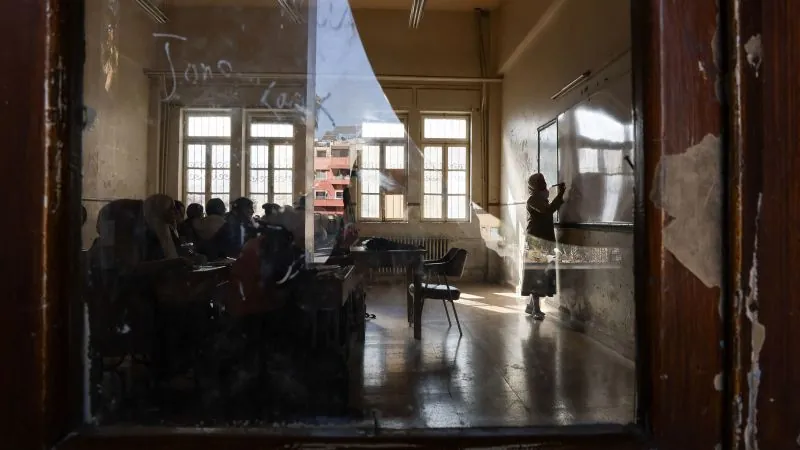
Controversial Overhaul of Syria's School Curriculum Ignites Fury Online
2025-01-02
Author: Jessica Wong
Introduction
Syria's newly established government is facing intense criticism following the announcement of significant alterations to the country's school curriculum, which many opponents claim promotes an Islamist perspective in education.
Controversial Changes
The controversial changes, outlined in a list of amendments shared on the education ministry's official Facebook page, include a shift in language from "path of goodness" to "Islamic path," as well as altering the description of "those who have gone astray" to specifically mention "Jews and Christians." This latter modification is rooted in a radical interpretation of a verse from the Quran that has raised concerns among many educators and parents.
Further alarming alterations include a redefinition of the term "martyr," transforming its traditional meaning—someone who died for their country—into a narrative that defines a martyr as someone who sacrifices themselves "for the sake of God." In a move that many found particularly troubling, certain educational chapters, such as one focusing on "the origins and evolution of life," were entirely removed from the curriculum.
Public Reaction
While it is yet to be confirmed if these amendments will be immediately implemented, they are intended for students aged 6 to 18.
The current educational changes have prompted a polarized reaction online. Some internet users welcomed the removal of references to the regime of Bashar al-Assad, who was recently ousted amid a protracted civil war. However, the overt religious modifications have incited a wave of outrage on social media platforms, with many questioning the authority of an interim government to enact such sweeping changes to the curriculum.
One online commentator stated, "This caretaker government has no legitimate right to amend the curriculum. Changes should follow the establishment of a new constitution." Other commenters expressed alarm that these revisions signal an attempt to "erase" critical aspects of Syria's history and promote a narrow ideological framework in education.
Government Response
In the face of the growing fallout, the ministry has attempted to downplay the significance of the changes, asserting that the curricula across Syria will remain unchanged until specialized committees are formed to review and audit them comprehensively. Education Minister Nazir Mohammad al-Qadri stated that the ministry had only directed the removal of content glorifying Assad's regime and substituted images of the regime's flag for those of the Syrian revolution.
The administration maintains that these adjustments aim to rectify certain "inaccuracies" that existed in the Islamic education curriculum under Assad's rule, particularly regarding the interpretation of several Quranic verses.
Continuity in Education
In previous discussions, al-Qadri reassured the public that both Islamic and Christian teachings would continue to be integral parts of the school curriculum. Primary education would remain coeducational, while secondary education would largely retain the gender-segregated format established during the Assad era.
Political Context
The HTS-led cabinet, which currently serves as an interim government, is expected to remain in power until new elections are organized—potentially extending the time frame for up to four years, as noted by de facto leader Al-Sharaa.
As the political landscape in Syria continues to shift, it remains uncertain how the caretaker government will navigate the challenges of governance and power handover, especially with indications that their mandate is set to expire in March 2025.
Conclusion
With the fate of Syrian children’s education hanging in the balance, the dialogue surrounding these curriculum changes will likely play a pivotal role in shaping cultural and ideological perspectives within the nation for years to come.


 Brasil (PT)
Brasil (PT)
 Canada (EN)
Canada (EN)
 Chile (ES)
Chile (ES)
 Česko (CS)
Česko (CS)
 대한민국 (KO)
대한민국 (KO)
 España (ES)
España (ES)
 France (FR)
France (FR)
 Hong Kong (EN)
Hong Kong (EN)
 Italia (IT)
Italia (IT)
 日本 (JA)
日本 (JA)
 Magyarország (HU)
Magyarország (HU)
 Norge (NO)
Norge (NO)
 Polska (PL)
Polska (PL)
 Schweiz (DE)
Schweiz (DE)
 Singapore (EN)
Singapore (EN)
 Sverige (SV)
Sverige (SV)
 Suomi (FI)
Suomi (FI)
 Türkiye (TR)
Türkiye (TR)
 الإمارات العربية المتحدة (AR)
الإمارات العربية المتحدة (AR)